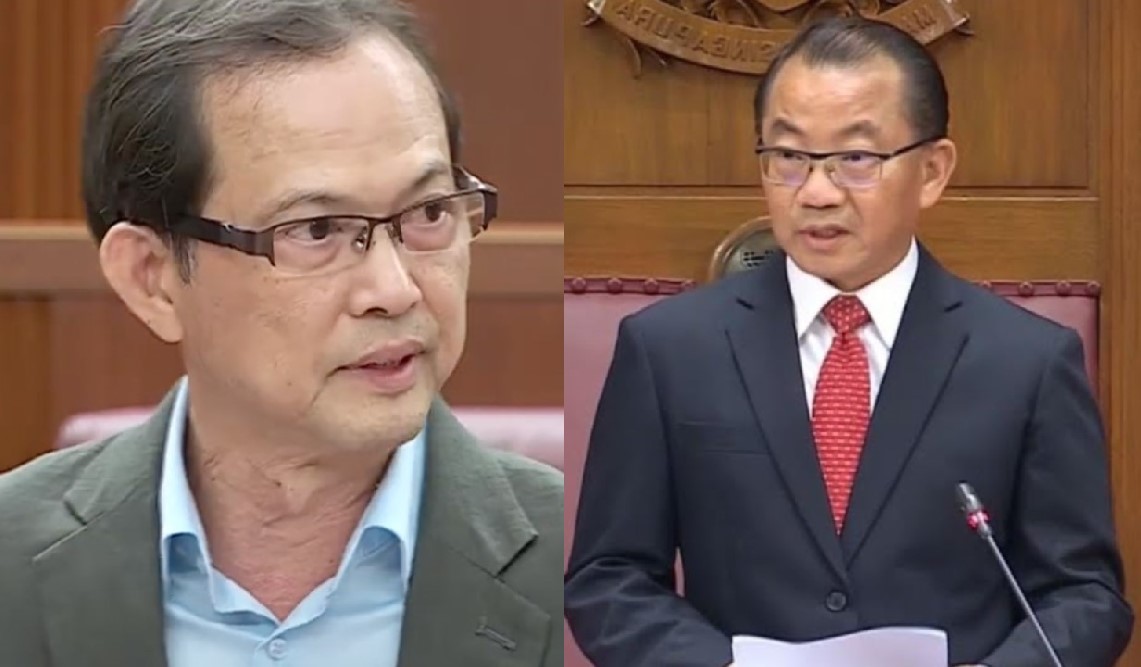SINGAPORE: The latest clash between Singapore’s Speaker of Parliament and Non-Constituency Member of Parliament Leong Mun Wai has sparked some calls for the Speaker to be an unelected official instead of an elected politician.
Mr Leong was censured in the House this week for a comment he made in an episode of the “Yah Lah But” podcast that aired on 14 May. During the podcast, one of the hosts noted that Mr Leong was one of the first to raise his hand when the Speaker called for questions.
Mr Leong then quipped: “And one of the last to be called.”
Revealing that the Speaker of Parliament has taken issue with this comment that was made more than a month ago, Mr Leong clarified on his Facebook page last Tuesday (25 June) that the comment was intended to be “tongue-in-cheek” and “meant to be a light-hearted one made at the start of the interview to lighten the mood in the context of a podcast.”
Mr Leong added: “This was in no way meant to be a comment on Speaker’s impartiality. Speaker has, on various occasions, called me ahead of other members.”
Speaker Seah Kian Peng, however, said in Parliament on Tuesday (2 July) that Mr Leong’s words has still cast aspersions on the Speaker’s impartiality, despite his retraction.
Pointing out that Mr Leong did not apologise, despite being asked to do so, Mr Seah warned members of the House that “such acts of contempt should not be repeated again, regardless of a member’s intention.”
He added: “The proceedings of parliament and the conduct of members being an elected, non-constituency or nominated member, Leader of the Opposition, minister or any other office holder, are not matters which should be taken lightly and cannot be made in jest.”
As to why he has taken issue with the comment made in the podcast, Mr Seah said: “The statement cast aspersions on my fairness and impartiality in calling members. This is a reflection of my character as the Speaker, touching on my conduct of parliamentary proceedings.”
Mr Seah added in Parliament that this is not the first such incident involving the PSP member. Indeed, Mr Leong has been admonished by three Speakers in the four years he has served as NCMP.
While Mr Leong has drawn flak for some of the comments he made in the past, Singaporeans online appear to be sympathising with him in this latest clash, with many commenting that the original comment went largely unnoticed until the Speaker took issue with it.
The issue has also triggered a discussion on whether the Speaker of Parliament should be a role occupied by an unelected official.
Critics online note that in the UK, for instance, Speakers relinquish party affiliations upon appointment and are expected to remain neutral, while in Australia, Speakers typically retain their party memberships, often aligning with the ruling party. In contrast, the US Speaker of the House actively participates in legislation and party activities.
Suggestions floating on social media include appointing the Speaker as an independent, perhaps through the creation of a Single Member Constituency (SMC) specifically for this purpose or appointing them as a super-NCMP/NMP.
Proponents argue that appointing a non-elected official could also address concerns about constituents losing direct representation if their MP is serving as the Speaker.
Netizens have also pointed out that there is precedence for having non-elected individuals holding this role as lawyer Sir George Edward Noel Oehlers OBE served as Singapore’s first Speaker, serving in the Legislative Assembly of Singapore between 1955 and 1963.
TISG/

